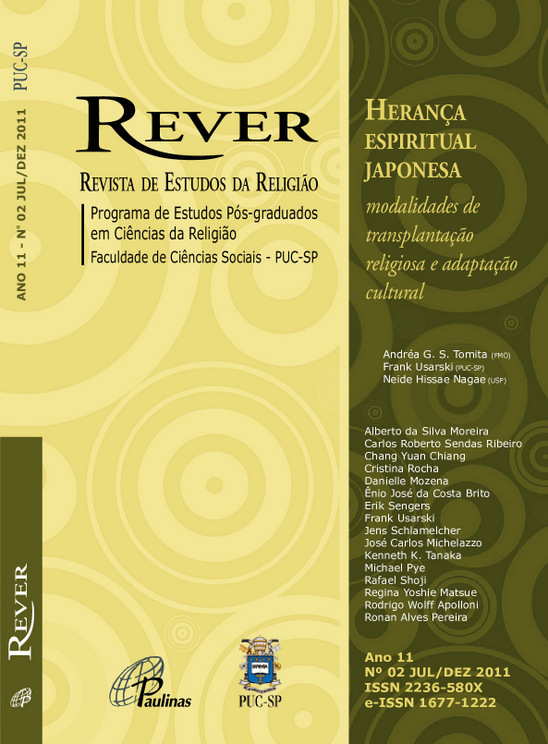Japanese Buddhism in the United States: The Tensions of Ethnic Identity and Universal Teachings
Keywords:
Japanese Buddhism, USA, Ethnic religiosity, universal religion, proselytismAbstract
Before World War II some US politicians accused Japanese Buddhist Temples in the country of worshiping the Japanese Emperor, thus expressing a strong sense of discrimination of Japanese descendants who had establish themselves at the north-American West Coast. In the respected social environment Buddhist temples not only served as religious centers, but also as social enclaves for Japanese immigrants and their families. In the decades after World War traditional Japanese Buddhists institutions in the USA have shown growing efforts of concentrating themselves on their specific religious tasks including the divulgation of a universal religious message which transcends ethnic boundaries. The results are ambiguous since the temples did not succeed in emancipation themselves completely from their ethnic heritage. The article deals with some of the tensions between ethnic tendencies and universal Buddhist ideas as reflects on different strategies of overcoming these difficulties.Metrics
Metrics Loading ...
Downloads
How to Cite
Tanaka, K. K. K. (2012). Japanese Buddhism in the United States: The Tensions of Ethnic Identity and Universal Teachings. REVER: Journal for the Study of Religion, 11(2), 33–53. Retrieved from https://revistas.pucsp.br/index.php/rever/article/view/8155
Issue
Section
Seção Temática
License

This work is licensed under a Creative Commons Attribution-NonCommercial 4.0 International License.
Authors who publish in this journal agree with the following terms:- Authors retain copyright, but grant the journal the right of first publication, with the work simultaneously licensed under the Creative Commons BY-NC License.
- Authors are authorized to assume additional contracts separately, for non-exclusive distribution of the work published in this journal (e.g., publishing in an institutional repository or as a book chapter), as long as with acknowledgment of authorship and first publication in this journal.


